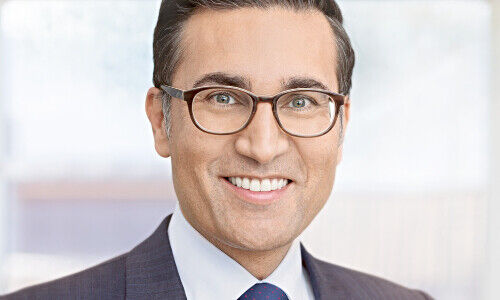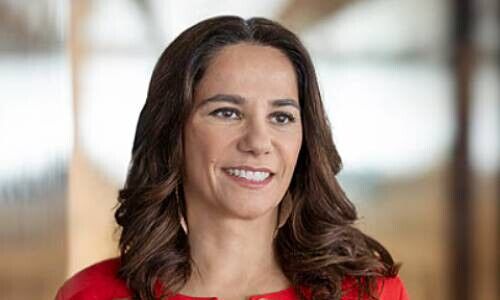It is not a well-known fact that UBS's leader Sergio Ermotti has to come up with three internal candidates to replace him. One specific criterion must be met. And it does not help the better-known candidates much.
Sergio Ermotti has an awe-inspiring to-do list right now. He has to complete the integration of Credit Suisse over the next two years while cutting $13 billion in costs. After that, he gets another two years to turn the combined entity into a $5 trillion wealth manager.
At that point, the 67-year-old banking leader, who was asked to return to UBS as CEO for the second time in April 2023, would clearly be in a position to take things a bit more easily.
Three Valid Candidates
But there is another important job he has to finish by then along with all the other ones. He has to present the board of candidates with three valid candidates that could potentially succeed him.
That is what Colm Kelleher, chairman of Switzerland's largest bank, seems to want. For him, it would be an ideal solution, as he recently stated in an interview. «I would like to see three internal candidates», he maintained. The integration will be complete in four years and the bank can fully concentrate on its future at that point.
The External Path
The UBS board is also going to look at external candidates – but that is something it has to take care of by itself.
For the Swiss institution, major US bank Morgan Stanley is a model of internal succession planning. The Wall Street giant carefully cultivated three internal candidates to replace long-tenured head James Gorman. In autumn 2023, it chose Edward «Ted» Pick, someone who had been at the institution for more than 30 years.
The UBS chairman added that «he liked the idea» in the interview. «But Sergio has to decide.»
Building Candidates Up
Ironically, Kelleher spent most of his career at Morgan Stanley before becoming UBS chairman. He was also integral in helping to build the candidates up. «I took Andy Saperstein out of wealth management and made him my operational head. We pulled Ted Pick out of Smith Barney's management. We moved people around so that they could broaden their experience», the Wall Street veteran says.
That shines some light on Morgan Stanley's principles. Rotate several managers through as many functions as possible to give them a wider scope of experience and leadership. Only then would they qualify to run the institution.

(Image: UBS)
Deep Fractures
Ostensibly, Ermotti thinks largely the same thing. As he mentioned recently at an investor conference, it is hard to make out who has a broader and deeper understanding of the business among the high number of talented specialists a global bank has in its workforce.
That could become a problem for UBS. Part of that is due to the bank's history. Despite being a global institution, it was long riven by deep fractures between the international and the domestic business. Then there was the large cultural discrepancy between the more English- or US-based investment banking heritage and private banking, where Swissnews was prized.
A New Silo
It is only relatively recently that a more uniform culture established itself, one where clients get the same type of service worldwide and employees can switch from continent to continent relatively easily. Integrating Credit Suisse, particularly the wealth management activities, could prompt an entirely different culture and build up a new silo that will have to be broken down later.
On the other hand, the bank continues to have rigid processes and hierarchies. Ermottis return, after he had introduced an additional line of management during his first term, only served to accentuate that. That can also be a hindrance for leadership talent in their effort to collect experience in other areas and businesses.
Cultural and Digital Transformation
The four years that are left for Ermotti's successors could end up being a very short time to get that kind of broad experience under their belts. Right now, the main question is whether the current candidates meet that kind of criteria or not.
The current head of the combined Swiss business, Sabine Keller-Busse (image above) seems to fairly meet it right now. As a former McKinsey consultant, she had a broad spectrum of experience when she joined the bank. Her previous position as group COO added to that, given she was responsible for global functions including technology, personnel, and the back office.
She had to both culturally and digitally transform the group. Moreover, as a long-term board member of the SIX exchange, she has a deep understanding of the Swiss financial sector as a whole.
Private Banker Through and Through
That is a sharp contrast to Iqbal Khan (image below), head of the Global Wealth Management business (GWM), who is a private banker through and through.
He quickly made partner at EY, and then climbed the wealth management career ladder at Credit Suisse before becoming its head, after he was poached by UBS in 2019. Since then, he has come to be seen as Ermotti's crown prince. But his experience is only in the business with high net worth clients.

(Image: UBS)
Responsible for Sustainability
That is why broad experience could end up being the killer category when it comes to succeeding Ermotti. The only one who meets that in spades in UBS's current management is Beatriz Martin Jimenez.
«Bea» Martin joined UBS's management last May and is currently the head of Non-Core & Legacy, or Credit Suisse's assets that are no longer needed and which play a key role in the integration of what was once Switzerland's second-largest bank. She is also the regional head of the business in Europe, the Middle East, and Africa (EMEA) and head of the UK while leading group-level sustainability and impact efforts since March.
Andrea Orcel's Chief of Staff
Before that, Marting was the group treasurer, operational head of the investment bank, and chief of staff of the then division head Andrea Orcel, who has since gone on to manage major Italian bank Unicredit as CEO.
Jimenez, as an investment banker, had successful career stints at Morgan Stanley and Deutschen Bank, which gives her both broad and international experience. The appointment of the Spaniard in 2023 was then seen as a surprise but now she is another candidate waiting in a holding pattern for the top spot at the bank. Still, Ermotti remains firmly in the saddle right now.
As chairman Kelleher said: «Four years are a long time.»




































